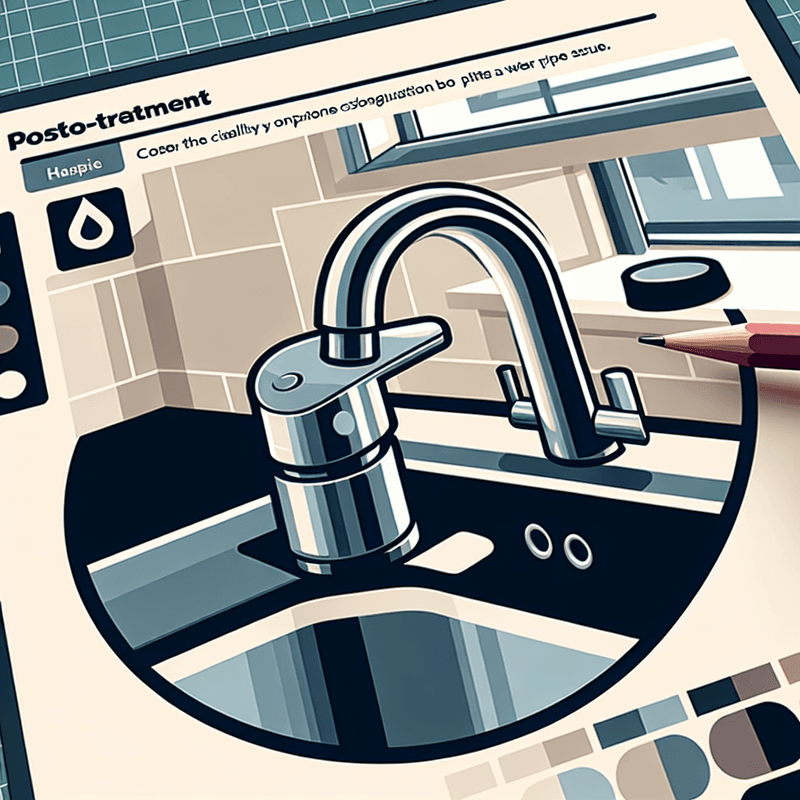When the chill of winter sets in, radiators become our silent heroes, offering the warm comfort we need. However, nothing interrupts this snug atmosphere more jarringly than discovering a puddle beneath your radiator. A leaking radiator can not only cause immediate disruption to your heating system but can also lead to potential damage to your home if not addressed promptly.
Understanding Radiator Leaks
Before diving into repair solutions, it’s helpful to understand why radiators leak in the first place. Typically, leaks occur at the radiator's valves, the pipe connections, or through tiny fissures in the radiator itself. These issues might stem from general wear and tear, corrosion, or improper installation. Recognising where the leak originates is the critical first step in addressing the issue.
1. Valve Leaks
The valve controls the flow of hot water into the radiator. Over time, these can become loose or worn out, resulting in leaks. They are easy to spot, often manifesting as a drip or a small stream of water emanating from the valve area.
2. Pipe Connection Leaks
These are usually found where the pipes meet the radiator. Fluctuations in temperature can cause these joints to expand and contract, potentially loosening over time and allowing water to escape.
3. Radiator Body Leaks
Leaks from the body of the radiator itself are less common but more problematic, often caused by corrosion weakening the radiator’s metal.
Spotting the Signs of a Radiator Leak
Detecting a leak early can prevent more serious damage. Signs include:
- Moisture or puddles around the radiator.
- Rust or discolouration on the radiator body.
- A noticeable drop in heating efficiency or pressure in your heating system.
DIY Fixes for Minor Leaks
If the leak is minor, you might be able to manage a temporary fix yourself. However, bear in mind that these are not long-term solutions:
- Tightening the Valves: Sometimes tightening the nuts around the valves or pipe connections can stop a leak. Use an adjustable spanner, but be cautious not to over-tighten as this can damage the valve or pipes further.
- Sealant or Tape: For small leaks, especially at joints, applying a plumbing sealant or using plumber's tape might help. These products can provide a temporary seal, but they aren’t a substitute for proper repair.
When to Call a Professional
While minor adjustments can be handled by anyone with a bit of DIY know-how, more significant radiator problems require professional intervention. Here’s when you should call in a plumber:
- Persistent Leaks: If your initial fix doesn’t hold, or the leak recurs, this is a sign of a more serious issue.
- Leaks from the Radiator Body: As these leaks might suggest significant internal damage or corrosion, a professional can assess whether repair or replacement is necessary.
- Complex Systems: Modern heating systems, especially those with combi boilers or underfloor heating, can be complex. Interfering with them without proper knowledge can lead to more significant problems.
Preventing Future Leaks
Prevention is better than cure, especially concerning heating systems. Regular maintenance can help extend the life of your radiators and prevent leaks:
- Annual Checks: Have a professional inspect and service your heating system annually. This can help catch issues like corrosion or wear before they result in leaks.
- Bleeding Radiators: Regularly bleeding your radiators to release trapped air can help maintain pressure and efficiency.
- Check the Water Quality: In areas with hard water, deposits can build up in radiators and contribute to corrosion. Using a water softener can mitigate this risk.
Conclusion
Discovering a leak in your radiator can be unsettling, but with prompt action, it doesn’t have to turn into a crisis. Identifying the type of leak and understanding whether you can apply a quick fix or need to call a professional can save you time, money, and prevent damage to your home. Regular maintenance remains your best defence against leaks, ensuring your radiators run efficiently and last through many winters.
Finally, while temporary DIY solutions can be handy in a pinch, they are not replacements for professional repairs. If you’re ever in doubt about the severity of a radiator leak, it’s wise to consult a professional plumber – it’s the safest route to ensuring your heating system remains robust and reliable.





